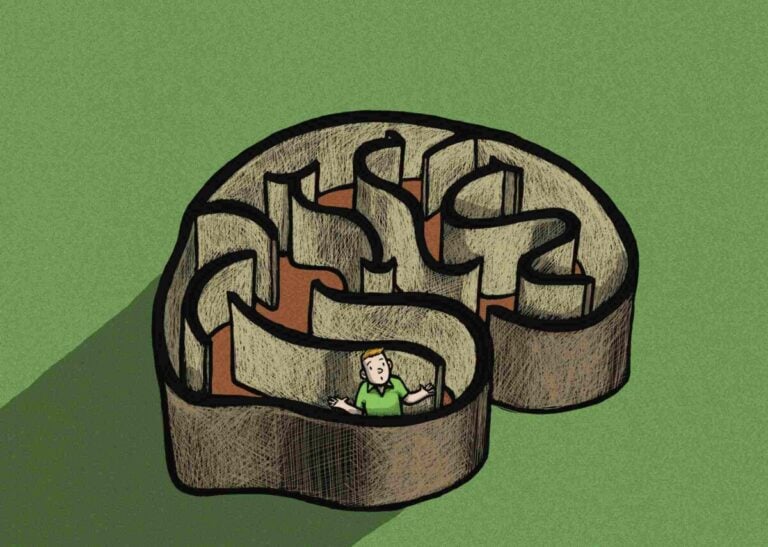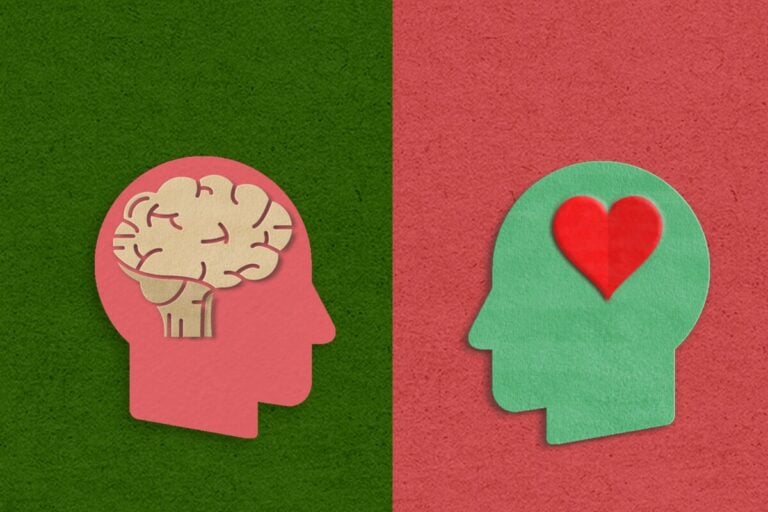From an evolutionary standpoint, perfectionism makes sense. Throughout the evolution of humans as a species, high performers have taken more prominent positions in their tribes or groups. They were more respected, glorified, and their opinions were taken more seriously than others. Now people live in a completely different world, different from the world of their ancestors, but the innate needs remain the same.
What is perfectionism – the answer of a psychologist
Perfectionism is the desire to do everything perfectly, says psychologist Albina Sirazieva.
For a perfectionist, it is very important to keep everything under control. If something does not go according to plan, then the perfectionist begins to feel powerless. The nature of perfectionism is rooted in childhood, when the child never received praise or when parental love was conditional.
For example, they loved only when the child received a good grade or did something around the house. Then the child was told that he was well done and loved. If the child did nothing of the kind, then he was automatically considered bad.

For normal development, a child must receive unconditional love. He must be aware from childhood that he is valuable in itself by birthright, and not for any achievements. Otherwise, the child may fall into perfectionism, which is fixed in the subconscious for many years, and sometimes for life.
What’s wrong with perfectionism? Perfectionism is always about what needs to be done perfectly. Even if a perfectionist did something well, he does not leave the feeling that it could have been better. This slows down the process of work, raises psychological stress in a person, which can lead to a decrease in efficiency, concentration of attention, and then to an exacerbation of chronic diseases, and ultimately lead to neurosis.
Therefore, it is important to monitor these states in yourself and work with them. The easiest way to overcome perfectionism is to give yourself permission to not be perfect, to live imperfectly, to work imperfectly, and so on. This helps to reduce psychological stress and allow energy to circulate freely within you.
The Selfish Pursuit of a Perfectionist
Perfectionists are usually blind to their nature and obsessed. They want everything to look their way and expect perfection. This behavior creates a bubble around them that makes them inflexible and rigid in how they see things. They adhere to the all-or-nothing principle.
Because they have such high standards and stick to them so obsessively, their jobs and relationships often suffer.
Perfectionism and healthy self-improvement
But do not confuse perfectionism with healthy self-improvement. The perfectionist is trying to say, “I need to be perfect, otherwise I feel inadequate.” This need stems from a lack of self-awareness, an inability to accept a different reality, and rejection. As a result, perfectionists are often disappointed.
A person practicing healthy self-improvement is trying to say: “I need to become better in order to live a happier life.” It is focused on self-improvement in order to realize a better future for oneself. The ease with which he strives for self-development stems from self-acceptance and self-awareness. Healthy self-improvement breeds self-satisfaction.
Performance degradation
The more we try to achieve perfection, the less perfect we become. Trying to be perfect places unrealistically high demands on us and others. Striving for and chasing perfection can be a fascinating paradox.

On the one hand, if we have unrealistic expectations of others, we tend to put a lot of pressure on them, and since they usually fail to rise to the level of our expectations, we become frustrated. We either try to fix their behavior or we abandon the relationship.
On the other hand, if we have unrealistic expectations of ourselves, we try to be perfect and never make mistakes. This puts a lot of pressure and anxiety on us. In an anxious state, our performance is greatly reduced.
The idea of perfectionism is to be perfect, but as perfectionists, we achieve the complete opposite.
Types of perfectionism
Typical perfectionism, when a person tries to maintain high standards, achieve excellence and avoid failure. This leads to a sharp self-esteem and, as a result, self-denial.
Other-oriented perfectionism, where a person has unrealistic expectations of other people. Such a perfectionist is strict and harsh when he evaluates the work of others, regardless of the environment.
Socially prescribed perfectionists believe that others have unrealistically high expectations of them, and they do not want to lose in their eyes. These people have a hard time judging themselves, and when they cannot rise to the level of their projections, they simply reject themselves.
How to overcome the perfectionist in yourself
1. Understand who you are
The development of self-awareness is an important step. In order to change, you must first identify what is preventing you from becoming the person you want to be. The problem is that no one teaches a person self-awareness as they grow up. However, this is the most important skill you may need to move forward.
Self-awareness is the ability to notice your thoughts, behaviors, beliefs, and how you interact with the world. Before you start making changes, you first need to understand what needs to be changed.
2. Accept who you are and that you can change
In self-awareness training, you must accept your emotions, thoughts, behaviors, and beliefs that will keep you from getting stuck. You must accept that everything you are now can change.
You must accept that change is possible if you put in the time and effort. Many people have done this before you, so why can’t you?
3. Be compassionate to yourself and others
Once you notice and accept your current reality, you must change the way you approach yourself, others, and life. If you are a perfectionist, you often get into the habit of judging. You take the blame or blame others, or you feel like others are blaming you. It all depends on what kind of perfectionist you are.

Learning to be more compassionate with yourself is no easy feat, but it is something you can do to ease the pressure you put on yourself and others. Every time you find yourself judging harshly, stop. Ask yourself: “If this were my best friend, what would I say to him?”.
4. See things differently
This is called cognitive reappraisal. This is the lesson of the ancient Stoics and the method of cognitive behavioral therapy. This also goes hand in hand with the practice of self-compassion. Everything in life is connected with the point of view of a person as an individual. It’s not about what happens in your life, but what meaning you give it.
If you are in a toxic relationship, you may view it as a failure and wonder why this happened to you. In this way, you form the mindset of a victim – and it’s not even about the fact that you may not actually be a victim, because many people clearly were and remain victims. But it doesn’t help you learn, become more emotionally stable, and just get better. Keep in mind what these relationships can teach you, analyze what worked and what didn’t, what you want and don’t want in your partner, what red flags to avoid next time, and what you could do differently.
It’s all about perspective, and choosing to be more growth-oriented instead of staying tough in the face of adversity can help you move forward.
5. Set healthier standards and goals
Perfectionists aim for the stars, so they often crash hard. Setting unrealistically high standards and goals is a recipe for disaster. You seem to be setting yourself up for failure.
If you or someone else does not live up to your expectations, you become judgmental. Learning to set clear, achievable goals and standards is an easy way to stop negative thinking.
6. Practice childish attitude
If you are a perfectionist, you will not accept anything but perfection. It’s an impossible feat, especially when starting something new.
Imagine a toddler who is trying to learn to walk. Does he try to perfect his ability the first time? Does he make sure everything is perfect the first time? If a toddler had striven for perfection, he would never have tried, never failed, and never learned to walk.
Children don’t think about being ready. They do what they can, they try, they fall to the floor. Trying teaches kids to balance, and they don’t care about failure. For them, it’s just a game.
7. Do not wait for the right moment, but rather do what you have in mind
If you are a perfectionist, then you are waiting for the right moment. Whether it’s about feeling set to start your own business, starting a weight loss journey, feeling emotionally and psychologically secure, or being able to enter into a relationship, whatever it may be, readiness is never the result of waiting.
















